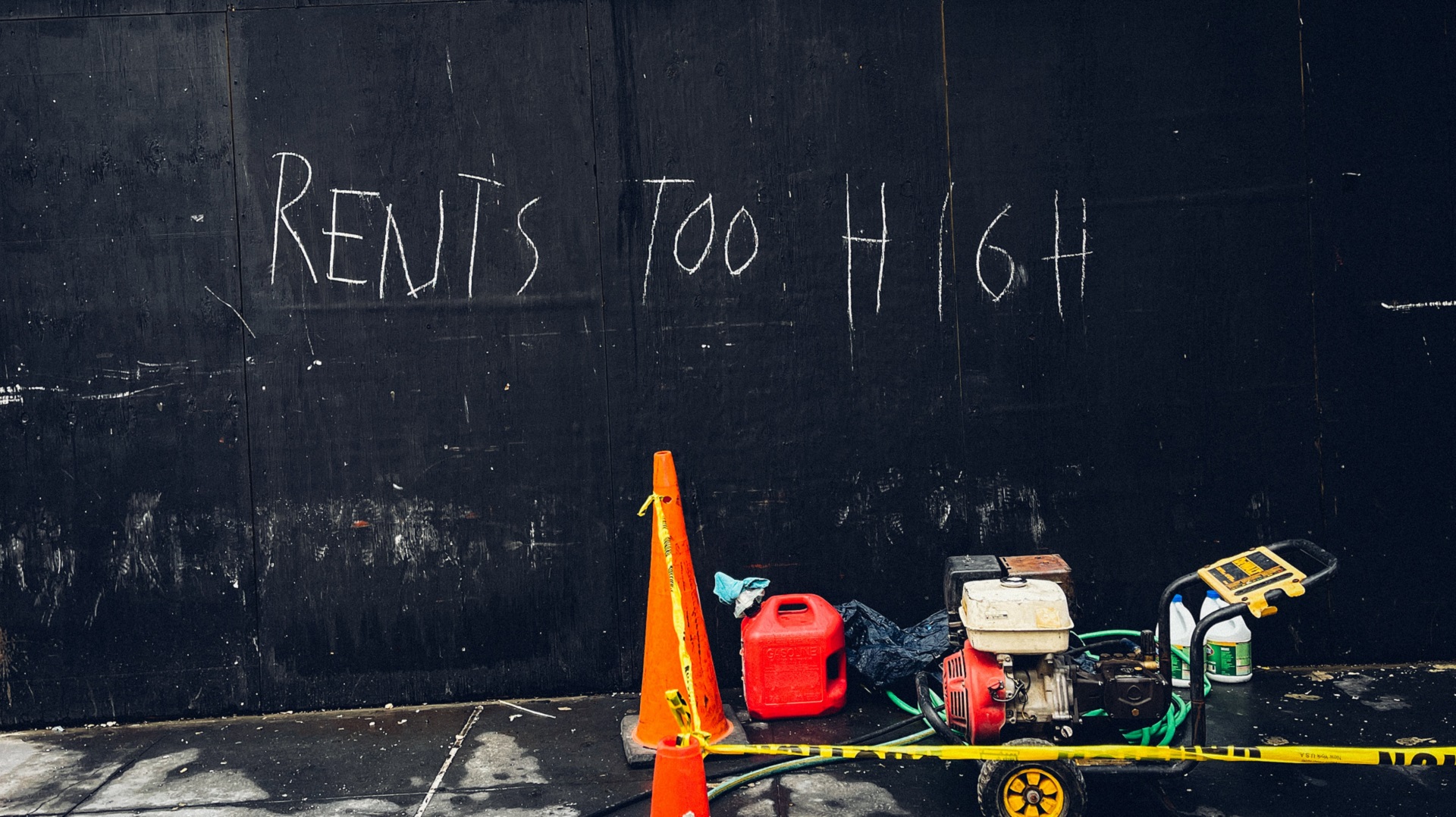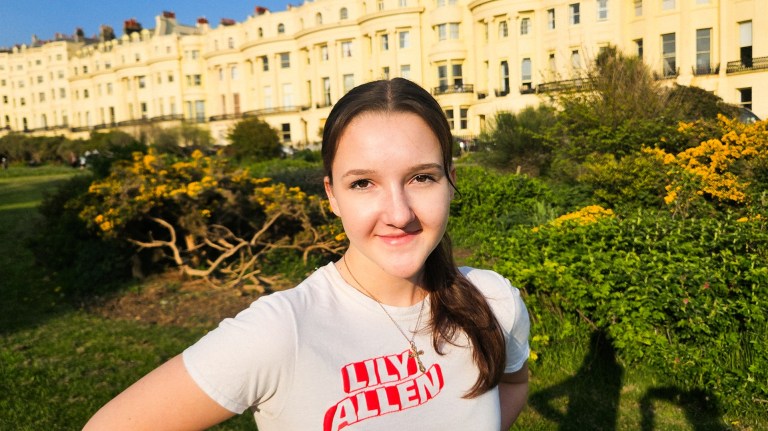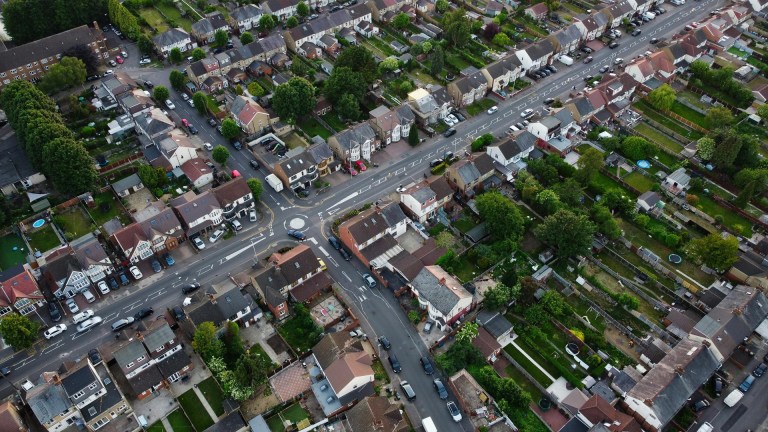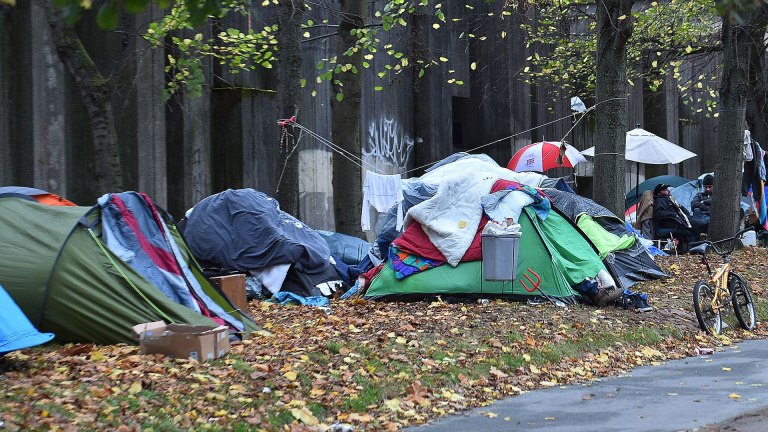“We rightly have caps on our energy and water bills, but the same protections don’t exist to stop landlords from pricing us out of our homes. The government can and must act through devolving powers to mayors to limit rent increases in their areas.”
The devolved countries in the UK have engaged with the issue of rising rents more directly than Westminster in recent years. The Scottish government limited rent increases and banned evictions during the cost of living crisis and are planning long-term rent controls. The Welsh government has also consulted on the idea of bringing in rent controls.
How much is rent in UK?
Around 4.7 million households use the private rented sector in England with 11 million renters. Around 450,000 households in Wales are private renters while 887,000 households renting in Scotland, including 323,000 renting privately.
The private rented sector is now the second biggest tenure of housing in England behind owner occupiers, making around a fifth of all households in the country.
The most recent ONS statistics show average rents increased 4.4% annually to £1,422 a month in England, rose 6.1% to £820 in Wales and 3.3% to £1,012 in Scotland in the year up to November 2025.
Renters in London are seeing rents 2.8% higher than in November 2024 at an average price of £2,271. Rent inflation in London has been slowing for the last year and the rate at which rents are rising fell from 4.3% in October 2025. The highest average rent across the UK is found in the London borough of Kensington and Chelsea at £3,634 a month.
Advertising helps fund Big Issue’s mission to end poverty
Private rents are rising at the fastest rate in the north-east of England, up 8.4% in the last year. However, rents in the North East are considered the lowest on average in England at £759 a month.
Rents are rising at the lowest rate in Yorkshire and The Humber, up 3.8% annually.
Overall, rent rises have been outpacing wage growth for virtually two years but the good news is that the gap between the two is closing.
Around 1.2 million private rented households have reported finding it difficult to pay rent, according to the English Housing Survey.
The proportion of income that tenants typically spend on rent has been rising in recent years for renters in England.
In England, renters on the medium household income could expect to spend 36.3% of their income on an average-priced rented home. Analysis from Resolution Foundation found the average monthly rent in 2024 is more than £200 above affordable levels.
Advertising helps fund Big Issue’s mission to end poverty
That rises to 41.6% in London, where all of the local authorities with the least affordable rents are located, according to the Office for National Statistics.
Housing is deemed affordable when renters spend less than 30% of their incomes on their housing costs.
Tenants typically spend 25.9% of their income on rent in Wales and 25.3% in Northern Ireland.
Hannah Aldridge, senior research and policy analyst at the Resolution Foundation, said: “The latest data indicates that renting in England remains unaffordable, with the average monthly rent in 2024 more than £200 above affordable levels.
“With rental growth continuing to outpace income growth, the average renter is now spending 36.3% of their income on rent – well above the ‘affordability threshold’ of 30%.
“The unaffordability of renting should be a key concern for policymakers. Last year, 23% of non-pensioner households lived in the private rental sector, almost double the 12% who did twenty years ago.”
Advertising helps fund Big Issue’s mission to end poverty
The Westminster government unfroze local housing allowance in April 2024 but tenants on low incomes are still facing a challenge to keep up.
Labour declined to help renters keep up with rising rents when chancellor Rachel Reeves opted not to raise local housing allowance in line with the bottom 30% of market rents.
With housing benefit frozen and universal credit rising by 1.7% in April 2025, people on low incomes are being locked out of the private rented sector with many facing homelessness.
Households have faced rising bills and food costs in recent years as part of the cost of living crisis and there is no respite when it comes to housing costs.
But there has been little action on the issues driving rising rents, namely high demand for properties and a lack of supply.
Research from Zoopla found the price of new lets has risen by 21% in the last three years, dwarfing house prices that have increased by 4% over the same period
Advertising helps fund Big Issue’s mission to end poverty
Why is UK rent so high?
The short answer to why rent is so high is because there is a shortage of affordable housing.
There is a housing crisis in the UK because not enough homes have been built by successive governments in the last few decades at a time where social housing stock has been sold off to the private sector through Right to Buy or demolished and not replaced.
An estimate from the National Housing Federation found around 340,000 new homes should be supplied in England each year with 145,000 them to be affordable. Shelter has called for 90,000 social rent homes to be built each year for the next decade.
The previous Conservative government has previously targeted 300,000 new homes in England – a 2019 manifesto commitment – but failed to hit that mark.
There have also been gloomy projections for the number of homes set to be built in the short-term future.
Labour has committed to building 1.5 million homes by 2029, including prioritising social rent homes to ease the demand on the private rented sector in the long-term.
Advertising helps fund Big Issue’s mission to end poverty
In England, 208,600 dwellings were added to the country’s housing stock in 2024-25, including 190,600 newbuild homes. That’s down 6% on the previous year.
Chancellor Rachel Reeves announced £39bn would be invested in affordable housing at the recent spending review in a bid to hit that total.
Meanwhile, areas like Cornwall where tourism has seen a surge in short-term lets through the rise of Airbnb in recent years faces even more pressures on demand.
The private rental sector has picked up the slack in recent years and has doubled in size over the last two decades.
The stiff competition has seen rents on the market increase but many landlords have kept pace by putting up rents for existing tenants.
While generally speaking there is a shortage of private rental properties across the UK, the difference between supply and demand changes from region to region.
Advertising helps fund Big Issue’s mission to end poverty
Will rent prices go down in 2026?
The rate at which rents have been rising fell throughout 2025 but there is still no sign that private rents will fall any time soon in 2026.
Rents on new lets are starting to hit the highest point of what tenants can afford and property portal Zoopla has declared the “rental boom is over”.
Zoopla research found that average rents for new lets rose by 2.8% in the year up to April 2025. While rents were still record highs, this was significant as it represented the first time since rents started rising in 2022 that monthly increases dipped under the wider inflation rate.
The property portal expects rents for new lets to rise by 2.5% across the UK in 2026.
Richard Donnell, executive director of research at Zoopla: “The rental market has made a big stride back towards normality over 2025 after a prolonged period of sky-high demand and a lack of homes for rent. This is welcome relief for renters who can expect to see a greater choice of homes, slower rent increases and a less competitive market.
“However, the high costs of buying a home remain a barrier to many renters, which will support demand for renting over 2026. While there are signs that landlords are buying homes again, we do not expect a big increase in supply, meaning rents are set to increase by 2.5% over 2026.”
Advertising helps fund Big Issue’s mission to end poverty
Meanwhile, the National Residential Landlord Association has continually warned of a landlord exodus ahead of the introduction of the Renters’ Rights Act.
Many of the new measures in the Renters’ Rights Act will come into effect in May 2026, finally banning no-fault evictions more than seven years after Theresa May’s government promised to axe them.
The bill introduces a number of changes to boost renters’ rights and security in the homes but has faced criticism for its lack of action on making renting more affordable and the government has rejected introducing rent controls.
Labour has promised the bill will end bidding wars between tenants as well as giving renters stronger rights to keep pets and avoid discrimination if they have children or are in receipt of benefits.
What will the Renters’ Rights Act mean for private rental prices? Time will tell.
Do you have a story to tell or opinions to share about this? Get in touch and tell us more.
Advertising helps fund Big Issue’s mission to end poverty
It’s helping people with disabilities.
It’s creating safer living conditions for renters.
It’s getting answers for the most vulnerable.
Big Issue brings you trustworthy journalism that drives real change.
If this article gave you something to think about, help us keep doing this work from £5 a month.





